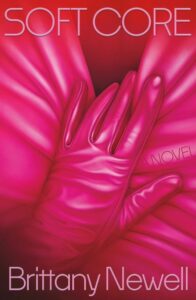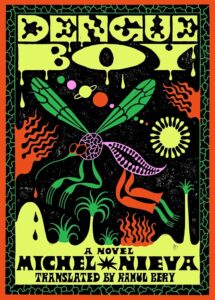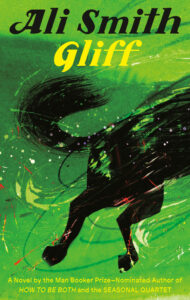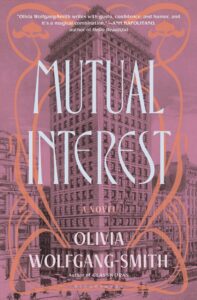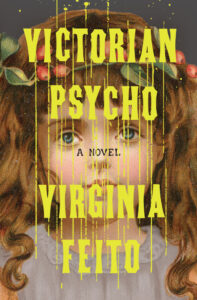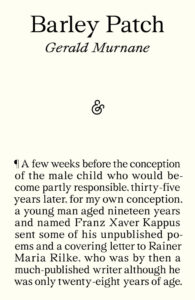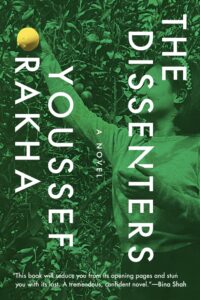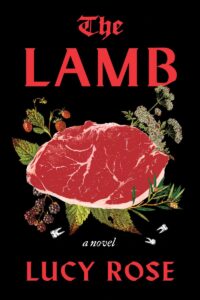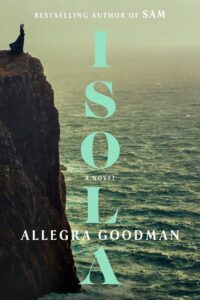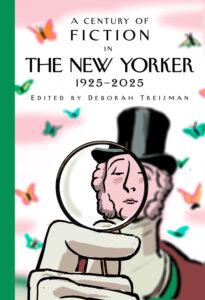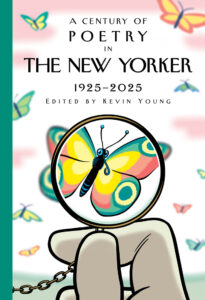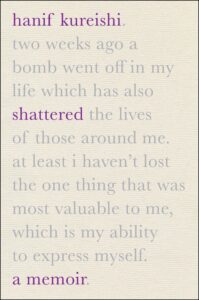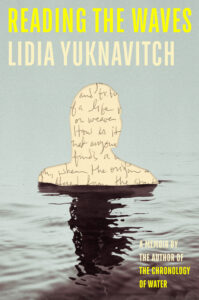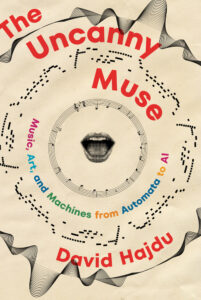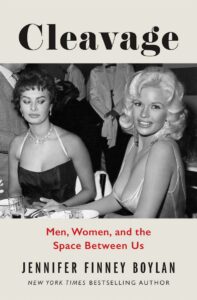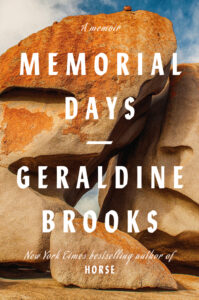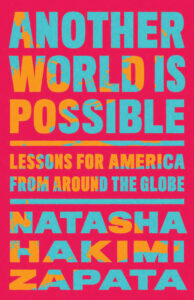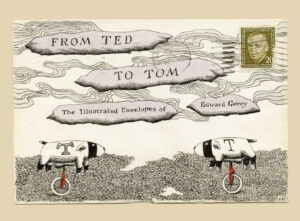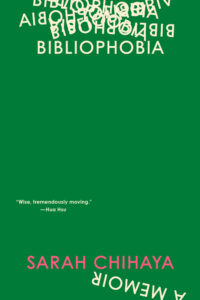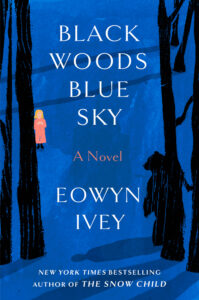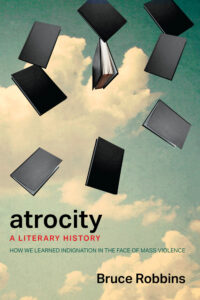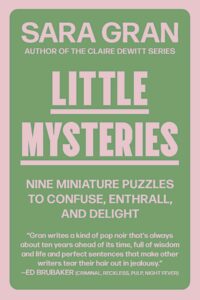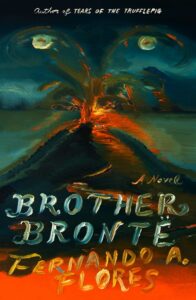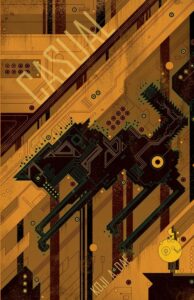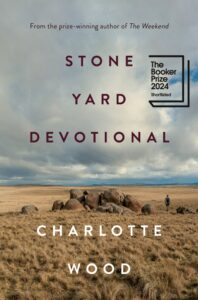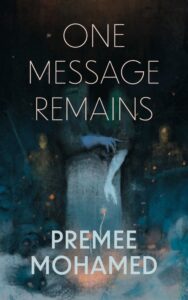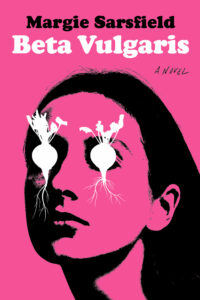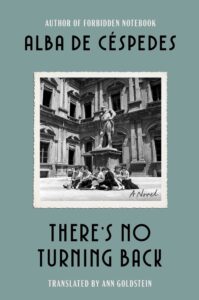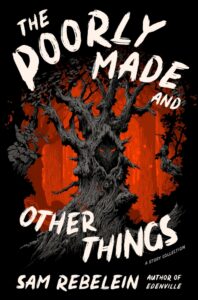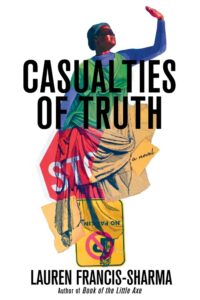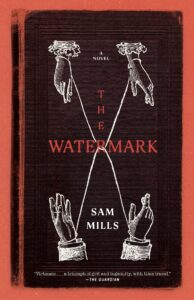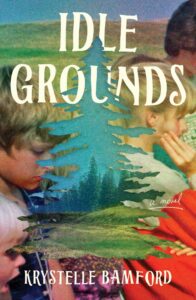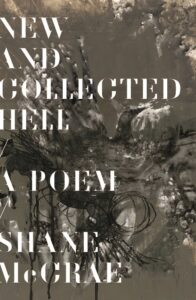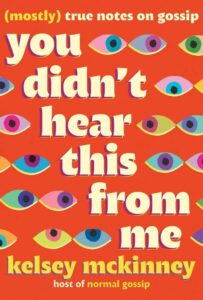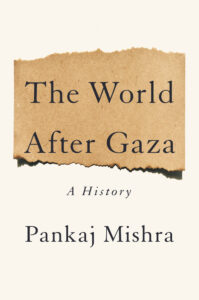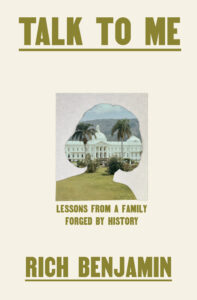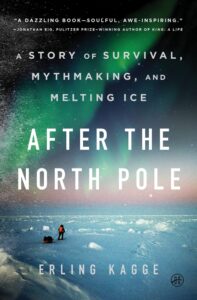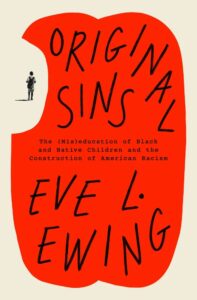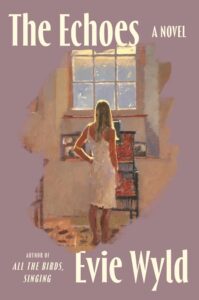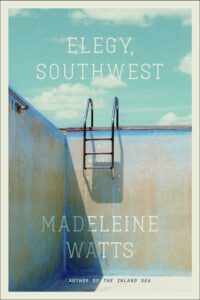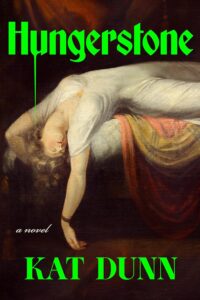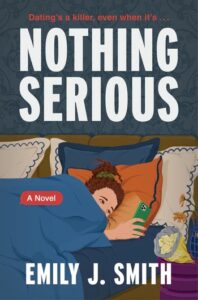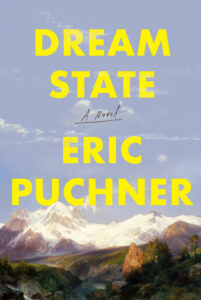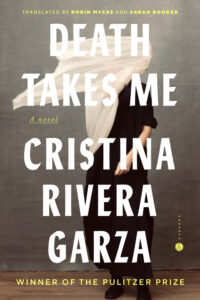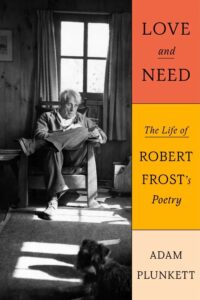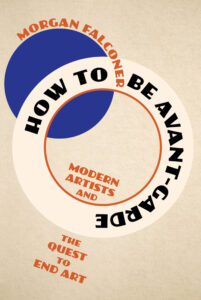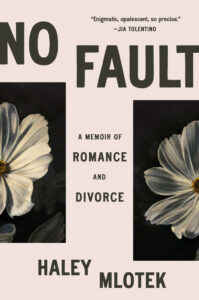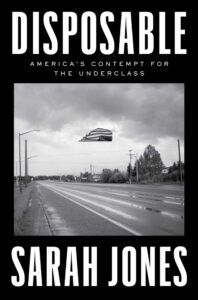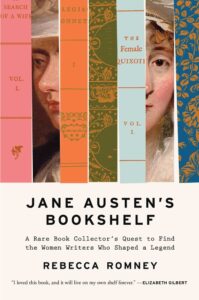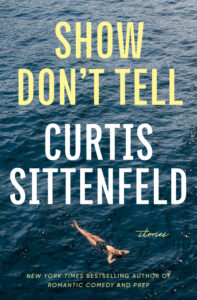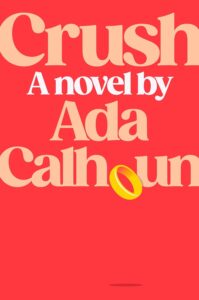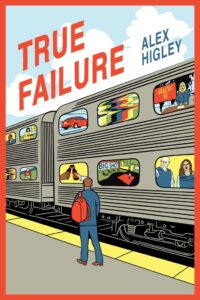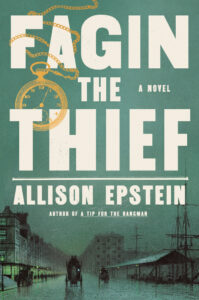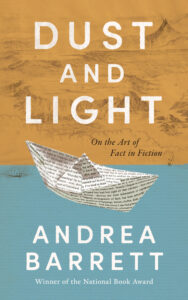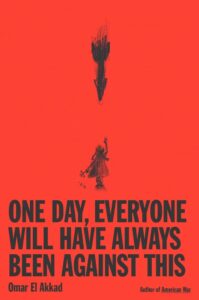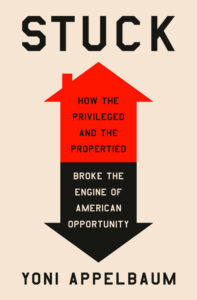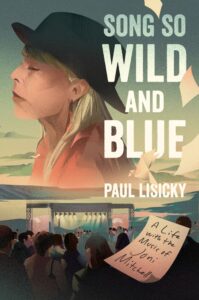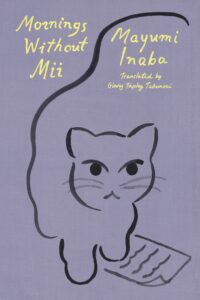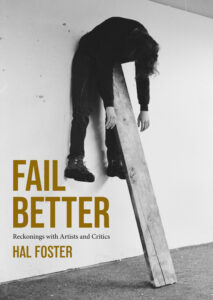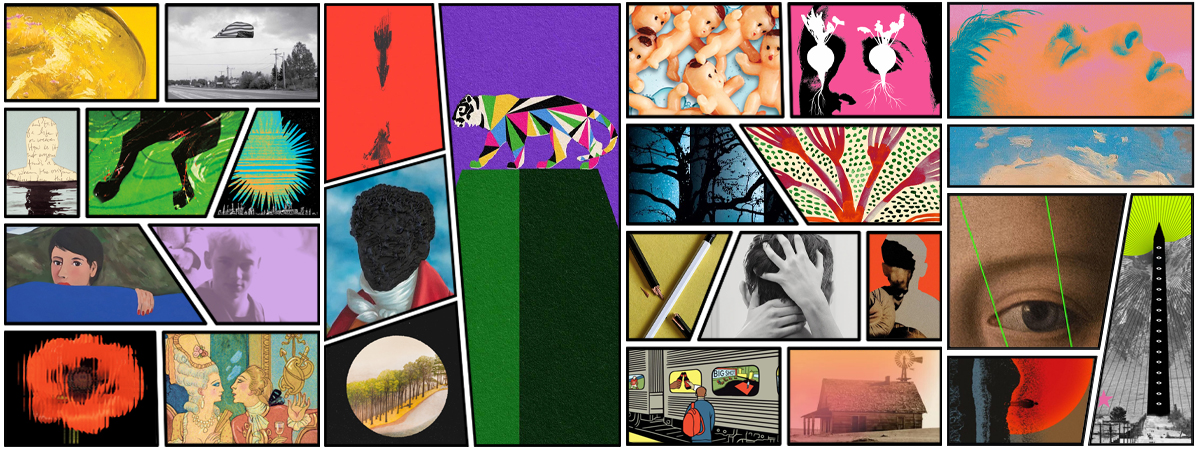
Lit Hub’s Most Anticipated Books of 2025
291 Books We're Looking Forward to in the New Year
FEBRUARY
Brittany Newell, Soft Core
FSG, February 4
Soft Core tugged me in fast and held me under. This sophomore novel from a sensational voice follows a curious young person, Baby, as she drifts from graduate school into sex work and searches for an AWOL ex-boyfriend on the streets of San Francisco. Baby’s narration is sage and witty, easily inhaled (“Youth made my general aimlessness cute; without it, I was just a bad investment”). But musings burn on the way out (“In our world, we studied sex appeal and sold it back to glands in suits”). A giddy, bracing entry into the scrappy-women-becoming-themselves canon.
If you’re looking for a stylist in the Raven Leilani tradition (but more antic?), or if you had strong reactions to either All Fours or Anora, this one should be on your radar. –BA
Michel Nieva, tr. Rahul Berry, Dengue Boy
Astra House, February 4
A part human and part mosquito child born from an experiment gone wrong goes on a journey, and a post-post-post capitalist world is on the brink of collapse. Sign me up. –OS
Ali Smith, Gliff
Pantheon, February 4
A new Ali Smith is always cause for excitement (I was excited about this last year, when I thought it was coming out in the fall—which it did in the UK, to be fair) and her latest is the first of a loose duology. All I know about this one is that it’s in the near future, it involves children and possibly a horse, and it will inevitably be intellectually rigorous and sneakily daring. But however she does it, you can always trust Ali Smith to capture the anxieties and joys of modern life. –DB
Olivia Wolfgang-Smith, Mutual Interest
Bloomsbury, February 4
I loved Wolfgang-Smith’s debut novel Glassworks, so am looking forward to this novel about queer entrepreneurs in Gilded Age New York. When Vivian Lesperance leaves her quiet life in upstate New York and meets Oscar Schmidt, a middle manager for a Midwest soap manufacturer, she sees someone who will lead her to the life she wants—one where she can pursue relationships with women (which works out since Oscar is more interested in men anyway). Seeking capital, they partner with Squire Clancey, scion of an old American fortune, and form Clancey & Schmidt. But when Oscar and Squire fall in love, they form a very complicated and fragile partnership—and exposure can threaten them all. Drama! –EF
Virginia Feito, Victorian Psycho
Liveright, February 4
Victorian Psycho is buckets of macabre fun, the story of a young governess stuck in the home of a twisted, wealthy family—and how she attempts to keep her violent fantasies of revenge, retribution, and good, old-fashioned cruelty at bay. That is, of course, until Christmas, when she’ll finally be able to give her employers the gifts that they so dearly deserve. It’s a real… “sleigh ride.” I’m so sorry. But not for telling you to go read it. –OR
Gerald Murnane, Barley Patch
And Other Stories February 4
Originally published in Australia in 2009 (after a 14-year break from writing fiction), Barley Patch is Murnane’s candid attempt to understand the nature of writing, particularly his own reasons for doing it. And when one of the great writers in the English language wrestles with such questions, we all benefit. –Jonny Diamond, Editor in Chief
Youssef Rakha, The Dissenters
Graywolf, February 4
I always find myself pulled toward historical stories, and The Dissenters is particularly exciting. Rakha’s first novel written in English is an expansive story that traces seventy years of Egyptian history through the life of one woman. In it, a young man experiences visions of his mother after her death, and these visions that teach him about the many different women she was throughout her life. This book sounds dreamy and strange and totally singular. –MC
Lucy Rose, The Lamb
Harper Books, February 4
This book was written for me in particular. Queer gothic folk horror? Say less. The Lamb follows a mother and daughter living alone in the woods, tending to the strangers who show up at their door. When a beautiful stranger shows up and the daughter begins to fall in love with her, all hell breaks loose. I’m ready for this book to consume me. –MC
Allegra Goodman, Isola
Dial Press, February 4
Goodman’s novel Sam was a fantastic bildungsroman that explored class, addiction, parenthood, and ambition. In Isola she turns to historical fiction to tell a story about a noble girl, based off of the 16th century French noblewoman Marguerite de la Rocque. Marguerite is orphaned as a child and her cousin, tasked as her guardian, uses her inheritance to pay off his debts. He then takes her on a journey to New France, but en route she falls in love with her cousin’s servants. She, her nurse, and her lover are abandoned on an uninhabited island, and the story follows her drive to survive. Resilience! Surviving the elements! Polar bears! But one of the best parts of Goodman’s writing is her insistence that all young girls have stories and lives worth sharing, even if this one is particularly exceptional. –EF
Deborah Treisman, ed., A Century of Fiction in The New Yorker: 1925-2025
Knopf, February 4
I love an anthology, and you could do a lot worse than 100 years—and 1,152 pages—of fiction published in The New Yorker; if nothing else it will be a fascinating document, and a very nice way to have some of my favorite stories always at hand. –ET
Kevin Young, ed., A Century of Poetry in The New Yorker: 1925-2025
Knopf, February 4
Ditto the above; and potentially even more interesting to wade through over a thousand pages of poetry than fiction, if only because of how many more distinct works you’ll be getting. –ET
Czeslaw Milosz, tr. Robert Hass and David Frick, Poet in the New World: Poems, 1946-2953
Ecco, February 4
The collection spans the pivotal post-war time in Milosz’s life and includes previously untranslated work from his time in Washington, D.C. –OS
Hanif Kureishi, Shattered: A Memoir
Ecco, February 4
In late 2022, novelist Hanif Kureishi collapsed in Rome; when he woke up, in a hospital bed, he couldn’t move his arms or legs. He began tweeting about his experiences, dictating his messages to his family—messages that soon began to encompass not only his thoughts about his accident and his mortality, but everything else that makes up a life: sex, drugs, music, parenthood, reading, writing. The Twitter thread became a Substack; this memoir collects, edits, and expands on the original messages to create a lasting record of pain and survival. –ET
Lidia Yuknavitch, Reading the Waves
Riverhead, February 4
Yuknavitch built a cult following with Chronology of Water, and is following up with another bracing, daring memoir, Reading the Waves. Much life has been lived since Chronology and Yuknavitch bares all in the telling. Using the transformative power of storytelling and harnessing narrative as her framework, Yuknavitch goes through it again: her traumatic upbringing, the abuse she suffered, her relationships of all sorts, to try and understand the story itself, and then the telling of it. In many ways a book-length ode to the power of craft, Yuknavitch continues on with the legacy she’s creating: the need for brutal honesty to pave the way for a brighter path. –JH
David Hajdu, The Uncanny Muse: Music, Art, and Machines from Automata to AI
Norton, February 4
Conversations about the intersection of art and technology right now are largely dominated by discussions of generative AI. Instead, this book covers a much wider history, from early animatronics to the advent of house music. It’s a refreshing scope. –OS
Jennifer Finney Boylan, Cleavage: Men, Women, and the Space Between Us
Celadon Books, February 4
One thing we’re absolutely going to do this year is read a metric ton of books by trans authors. But where to start? Whoa wait, Cleavage is a book by a trans author! And it’s about being trans in America! Boylan’s newest book is an examination of gender identity and the ways our conceptions (and misconceptions) of gender affect the world around us. Cleavage promises to be insightful, readable and clever. –MC
Geraldine Brooks, Memorial Days: A Memoir
Viking, February 4
Brooks removed herself to an island off the Australian coast to get down to the writing of this new memoir, a profound meditation on the nature and practice of grief across cultures, and in one very particular experience—her own, after the unexpected loss of her partner. –DM
Natasha Hakimi Zapata, Another World is Possible: Lessons for America from Around the Globe
The New Press, February 4
Even if you don’t believe the “America is the best country in the world” propaganda, I think it can be hard for Americans to remember that the “American Way” isn’t the only way. That’s why I’m so excited for Another World is Possible, a book that offers international solutions to American problems. There are so many other countries in the world that are handling modern problems differently (and, frankly, better) than we are. As we stare down the barrel of another Trump presidency, it’s helpful to remember that we aren’t the only country in the world, and there are other countries making better choices. –MC
Edward Gorey, ed. Tom Fitzharris, From Ted to Tom: The Illustrated Envelopes of Edward Gorey
NYRB, February 4
I love Edward Gorey, as (I’m assuming) we all do, if we’re reading this website. This marvelous collection is the perfect way to deepen your love of Gorey (or, if you’re new to his work, fall in love with it). Tom Fitzharris and Edward Gorey began a friendship in 1974, and in the following year, Gorey and Fitzharris began a correspondence. Gorey sent Fitzharris a total of fifty letters, all whimsically illustrated and full of charming, miscellaneous bits of trivia, and fun surprises. And finally, they’ve been reprinted all together. Read it and feel (as I did) the privilege of being Edward Gorey’s pen pal. –OR
Sarah Chihaya, Bibliophobia: A Memoir
Random House, February 4
Anyone reading this website believes in the power of books. And Chihaya, who built her life around books as a reader, critic, and teacher, understood that power. But when she’s hospitalized for a nervous breakdown, “the world became an unreadable blank page.” In these essays, she charts a story of breakdown and survival through books, exploring race, depression, suicide, and the idea that books allow us to lose—and find—ourselves. This feels like a must read for any reader determined to understand why we turn to literature in both the best and worst of times. –EF
Eowyn Ivey, Black Woods, Blue Sky
Random House, February 4
Obviously I have to be the one to recommend the new Eowyn Ivey book, since we’re both writers from Alaska. I love Ivey’s lush, vibey folk fiction, so I’m particularly looking forward to this retelling of Beauty and the Beast set in rural Alaska. A single mother falls in love with a strange man, but when she and her daughter move into him in his isolated cabin, it’s not what she expected. This novel is sure to be beautiful and haunting. –MC
Bruce Robbins, Atrocity: A Literary History
Stanford University Press, February 4
Maybe it’s cheating for me to write this blurb because Bruce Robbins is (in addition to being one of my absolute favorite thinkers in the world) one of my absolute favorite professors from my graduate school days. But let’s put that aside; please allow me to recommend his fascinating and essential new book exploring literary representations of mass violence to show how such a thing can take shape—into the abhorrent phenomenon it is, in today’s world. –OR
Sara Gran, Little Mysteries
Dreamland Books, February 11
Gran has rightly had a bit of a renaissance in the last few years, as Come Closer has found a new hungry group of readers. I’ve always been a fan of Gran’s Claire DeWitt mysteries—existential, elliptic, frustratingly human [positive]—and this new collection of short DeWitt stories (or DeWitt-adjacent stories) is like water in the desert. There’s a lot of play afoot here (including a cootie catcher story!) and that makes me all the more excited for Gran’s return to fiction after a few quiet years. –DB
Fernando A. Flores, Brother Brontë
MCD, February 11
Fernando Flores, when he’s not working as a bookseller extraordinaire, crafts bizarre set pieces that are as wonderful to read as they are difficult to categorize. His latest takes us into the near future, where the denizens of a dusty Texas town fight to save their precious volumes from the state’s enthusiastic book shredders. –MO
Koji A Dae, Casual
Tenebrous Press, February 11
The best science fiction is often the kind that helps us understand (or even… warns us?) about the world of tomorrow, and Dae’s deserves to be up there with Atwood, Bradbury, Dick, and Gibson. At a time when bodily autonomy is increasingly under assault, the neural implants of Dae’s novel seem both inevitable and horrifying—and her look at motherhood under technological surveillance is a must-read for the moment. If you liked Black Mirror but don’t think you can read SF, I challenge you to give this one a shot. –DB
Charlotte Wood, Stone Yard Devotional
Riverhead, February 11
A woman retreats to a convent in Australia, where her isolation is disrupted by a few intense occurrences (including an onslaught of mice). This was on the 2024 Booker Prize shortlist, which is probably enough of a recommendation for most readers. But Ryan Chapman, when I talked to him about the Booker, really sold this for me. He called it one of the best pandemic novels he’s seen, and although it isn’t explicitly about COVID, you can see the ways in which Wood’s exploration of isolation and anxiety fit with the mood of those harrowing early months of 2020. –DB
Premee Mohamed, One Message Remains
Psychopomp, February 11
Mohamed had a big 2024 (The Butcher of the Forest was one of my favorite SFFH titles of last year and The Siege of Burning Grass would’ve been on that list if I had finished it in time) and this story collection is here to tide over the ever-growing horde of readers hungry for more. This is a novel in stories, or a linked collection, depending on how you look at it: four stories about colonialism and surviving under empire, all set in the same fictional world. For a taste, check out “The General’s Turn” in The Deadlands—I guarantee it’ll speed you towards a pre-order. –DB
Margie Sarsfield, Beta Vulgaris
Norton, February 11
I’m trying to create a niche for myself as the preeminent weird-girl-book guy. To cement my legacy, I’m recommending Beta Vulgaris, a very weird book that I’m very excited for! When a young woman and her boyfriend start working a seasonal job at a sugar beet farm, she wants to make enough money to pay her rent for a few months. What she gets is a string of mysterious disappearances and a pile of beets that seems to be talking to her. Thank you Margie Sarsfield for your contribution to the “vegetable gothic” canon. –MC
Alba De Céspedes, tr. Ann Goldstein, There’s No Turning Back
Washington Square Press, February 11
While de Céspedes’ novel was technically published (and banned by the Italian Fascist regime) in 1938, this English translation is brand new. This novel by Alba de Céspedes, the boundary-breaking 20th-century Italian feminist author, follows a group of very different women attending college together in Rome. If you’re looking to rediscover historically significant (but often ignored) female authors this year, There’s No Turning Back is a great place to start. –MC
Sam Rebelein, The Poorly Made and Other Things
William Morrow, February 11
Rebelein is one of the bright new voices in horror fiction, blending a giddy playfulness with a keen eye for the darker side of the universe. Here, he returns to Renfield County in upstate New York (the setting of his debut, Edenville) with a story collection that offers plenty of chills—but for every moment of fright, there’s a commensurate moment of humanity. It’s a surprisingly powerful book about grief, loneliness, and mental health too. Plus, rumor has it there might be a second novel coming later in the year, so now’s the time to whet that appetite…. –DB
Lauren Francis-Sharma, Casualties of Truth
The Atlantic Monthly Press, February 11
In this new novel from the author of Book of the Little Axe, a woman is confronted by a past she had hoped—and expected—to keep hidden. Xochitl Gonzalez calls it “an unforgiving tale of cat-and-mouse begging us to confront just how far we’d go to take control in a society hell-bent on minimizing our pain,” and adds, “these pages set loose the raging, wicked what-ifs we keep deeply and shamefully hidden inside our basements.” –ET
Sam Mills, The Watermark
Melville House, February 11
I picked up a copy of this when I was in Europe this summer, where it was already out from Granta—and I was absolutely blown away. I love a story about going inside of a story, and Mills does it with gusto here. Her protagonists are trapped inside a story (or is it several stories? Or are they trapped?) by an author looking to extend his life… but can a life be well-lived even inside of someone else’s fiction? There are elements of Inception’s several-layers-down trickery here but it’s also a set of charming and well-done pastiches of everything from JG Ballard to doorstopper Russian novels. Let yourself get lost in this, as we all imagine we might get lost in a good book from time to time—Mills will transport you. –DB
Krystelle Bamford, Idle Grounds
Simon & Schuster, February 11
I read this in a single sitting, sort of by accident. I started it and the shifty first-person-plural narration snagged me like a branch grabbing at my shirt and then suddenly it was 3am and I hadn’t gone to bed. There’s a deeply unsettling quality to this book, both in the way that Bamford ratchets up the unease but also in the way that she will sometimes strip it all away without warning. It is the story of a single summer’s afternoon, a bunch of cousins at a family reunion, something bad lurking in the later part of the day… but to say more would be a crime. An original stunner. –DB
Clarice Lispector, Covert Joy: Selected Stories
New Directions, February 11
What can I say about Lispector that hasn’t already been said? This selection of stories by the great Ukrainian-Brazilian writer is the greatest hits from her Complete Stories, featuring some of her most beloved work. Lispector is an astoundingly good writer, and this curated anthology is a great entry point for new readers, and an excellent distillation for old fans. Plus this edition has an introduction by Rachel Kushner, which on its own is well worth the price of admission. –JF
Shane McCrae, New and Collected Hell
FSG, February 11
In a collection of his new and previous work, Shane McCrae’s project is to take the reader on a journey through Hell. It’s an epic project, and one for which McCrae’s prior work—with echoes of the religious and the mythic spoken in a lyrical, bracingly contemporary voice—has laid the groundwork. He’s a poet everyone who cares about contemporary poetry should be reading. –JG
Kelsey McKinney, You Didn’t Hear This From Me: (Mostly) True Notes on Gossip
Grand Central, February 11
From novelist and host of the popular podcast Normal Gossip comes a study of gossip—but one that never forgets the joys of it. As someone who has long refused the notion that gossip is bad (just look at all the benefits!), I am looking forward to being further vindicated, not to mention delighted, and entertained. See, benefits. –ET
Pankaj Mishra, The World After Gaza: A Short History
Penguin Press, February 11
Derived in part from his widely read, rightfully lauded essay in the London Review of Books, “The Shoah After Gaza” Mishra’s latest undertakes the difficult but important task of reconciling the contradictory stories of the Global North and the Global South. While the former has squandered the last of its alleged moral authority in support of neoliberal empire the latter urgently seeks liberation from the deadly and ongoing aftershocks of colonialism. Essential reading. –JD
Rich Benjamin, Talk to Me: Lessons from a Family Forged by History
Pantheon, February 11
Rare is the memoir that allows us a window into the deeply personal fallout of very public, world-historical moments in history. So it is with Benjamin’s Talk to Me, the story of his family’s unwilling exile from Haiti (his grandfather was briefly president in 1957), and how that unspoken trauma passed from generation to generation. –JD
Erling Kagge, tr. Kari Dickson, After the North Pole: A Story of Survival, Mythmaking, and Melting Ice
HarperOne, February 11
I think about Kagge’s Silence: In the Age of Noise at least once a week; if you don’t know him, he’s a Norwegian explorer, a sort of physical philosopher whose work is quietly essential to our understanding of the world. His latest book chronicles his 58-day journey to the North Pole, on skis—the first, along with his companion, to make it there “without dogs, without depots and without motorized aids.” Newness and strangeness still exists; I will be reading with great pleasure. –ET
Eve L. Ewing, Original Sins: The (Mis)education of Black and Native Children and the Construction of American Racism
One World, February 11
Even as public schools seem under constant attack from the moral panic brigade, which seeks to ban any mention of queer people, slavery, Jim Crow, Indigenous genocide… (it’s a long list) Ewing suggests that the American education system is already doing what it was designed to do: maintain this country’s foundational white supremacist structures. Only with a radical rethinking of these systems can America move beyond its racist origins. –JD
Evie Wyld, The Echoes
Knopf, February 18
The novel opens with the narrator having died and realizing that he’s a ghost. If you are like me, you’ll probably not need any further recommendation. In case you do, though: Wyld is a master of the mundane, of the small moments between people, and this is a thorough interrogation of a relationship and what can stay hidden even between the closest of couples. This territory has been mined in film several times over, but never so successfully in literature as it is here. –DB
Madeleine Watts, Elegy, Southwest
Simon & Schuster, February 18
A married couple on a road trip in the American Southwest reckon with the problems with their relationship, a possible pregnancy, and imminent climate catastrophe. This book promises to be the perfect showcase for Watts’ considerable skill at rendering humanity amid climate grief. –JG
Kat Dunn, Hungerstone
Zando, February 18
Before the very gay Dracula was ever conceived, there was the much gayer Carmilla—a queer-coded novella of female desire and insatiable hunger. Kat Dunn has taken that original inspiration and made it much stranger (and hotter), as we follow the journey of an unhappy aristocratic wife slowly coming to embrace her unholy appetites, under the guidance of an extremely sexy vampire/chaos queen. *fans self* –MO
Emily J. Smith, Nothing Serious
William Morrow, February 18
In this debut novel, a 35-year-old tech executive, in love with her best friend, gets sucked into a rabbit hole of obsession when said best friend goes on a date with a feminist writer who then turns up dead. Kate Brody calls it “the modern, feminist dating world thriller I’ve been waiting for,” and Lynn Steger-Strong writes that the book “seduces with its yearning in a world that so often feels as if it has no space for yearning, compels and entrances with its questions and its mysteries, and satisfies with its humor and its honesty.” –ET
Eric Puchner, Dream State
Doubleday, February 18
Cece is getting married in a month, at her favorite place in the world—her fiancé, Charlie’s family vacation home in Montana. Charlie’s best friend Garrett, living in town and still reckoning with the aftermath of a tragedy, is set to officiate. Cece is initially repelled by Garrett, but as the two spend more time together, they find themselves increasingly drawn to one another. A brilliant, sprawling epic as funny as it is devastating, Dream State unspools the aftermath of that summer over many years. I haven’t been this dazzled by a novel in a long time. –JG
Cristina Rivera Garza, tr. Robin Myers & Sarah Booker, Death Takes Me
Hogarth, February 18
A genre-defying take on the crime genre from Pulitzer Prize-winner Cristina Rivera Garza. Death Takes Me follows a professor (named Cristina Rivera Garza) who discovers a corpse in an alley with a peculiar poem written on the wall next to it. When the professor begins working to untangle the crime with a local detective, they discover something much darker than they expected. I love a genre-bending book and anything meta, so I’m really looking forward to this surreal new novel. –MC
Adam Plunkett, Love and Need: The Life of Robert Frost’s Poetry
FSG, February 18
Blending biography and literary criticism, Adam Plunkett tells the story of the life and work of one of America’s most enduring (and misunderstood) poets. This promises to be fascinating work that sheds new light on Frost’s legacy. –JG
Morgan Falconer, How to be Avant-Garde: Modern Artists and the Quest to End Art
Norton, February 18
“Avant-garde” is one of those phrases that has become so ubiquitous, that its meaning has drifted significantly from its roots. This new book takes readers back to the origin of the avant-garde, and charts its evolution and transformation in the hands of a group of international artists and writers. Falconer traces the style and ideas from the Italian Futurists obsessed with planes, cars and war, to idealistic Russian Constructivists, to the college experimentation of the Bauhaus, to the Situationist proto-punk street provocateurs. It’s a wide-ranging book full of sharply observed detail. –JF
Haley Mlotek, No Fault: A Memoir of Romance and Divorce
Viking, February 18
While it is in the same vein of the divorce memoirs we’ve been inundated with these past years, No Fault succeeds at depicting more than just an autobiographical lens on divorce. Haley Mlotek uses her own breakup only as a jumping off point to grapple with the idea of divorce as a cultural phenomenon, choosing to look outward rather than inward, using films and literature and history as grounding elements in her winding meditation on the subject. Another revelatory addition to the collection of books on marriage and its endings, No Fault captivatingly provides a review of many other artistic depictions of marriage and divorce as well as offers an elucidating peek into her first-hand experience. –JH
Sarah Jones, Disposable: America’s Contempt for the Underclass
Avid Reader Press, February 18
Sarah Jones’s writing about economic disparity is always compelling. In this book, she blends personal narrative and reporting to tell the story of America’s devastating culture of inequality. It’s a subject that couldn’t be more timely, or urgent. –JG
Rebecca Romney, Jane Austen’s Bookshelf: A Rare Book Collector’s Quest to Find the Women Writers Who Shaped a Legend
S&S/Marysue Rucci, February 18
It’s about time that Rebecca Romney immortalized her brilliant, curious mind in book form! Well-known as the rare book expert on the TV show Pawn Stars (as well as the founder of the DC-based rare book company Type Punch Matrix), Romney has chosen the perfect project to showcase her curatorial and research prowess, as well as her specialty in illuminating how the study of bookshelves can greatly inform our knowledge of historical figures or events. And who better to turn this perspective towards than Jane Austen, the architect of much of our modern literary culture? It’s a perfect project, a perfect book. –OR
Curtis Sittenfeld, Show Don’t Tell: Stories
Random House, February 25
Curtis Sittenfeld’s fiction is perennially inhale-able—smart, barbed, and wickedly funny. I can’t wait to read her latest collection. According to Publishers Weekly, “These stories entertain and unsettle in equal measure.” I look forward to being delighted and destabilized. –JG
Ada Calhoun, Crush
Viking, February 25
Calhoun (Also a Poet, St. Marks is Dead) makes the leap to fiction with a fizzy and powerful exploration of modern marriage—and the pitfalls and excitements of redefining marriage while you’re inside of it. It’s a story about love, in so many of its forms, and the chaos that can come from a crush. It’s both more than a romance novel and absolutely a romance novel. It’s a delight. –DB
Alex Higley, True Failure
Coffee House Press, February 25
Oh, late capitalism. What will we do when you’ve failed? What will we write novels about?? Higley’s is a hilarious entrant into the annals of capitalist flailing, with an out-of-work husband who hasn’t told his wife about losing his job because he’s working hard to land a spot on a Shark Tank-esque reality show. But it turns out everybody in this book is lying to someone, or many someones, and as their stories entwine, things go madcap quickly without ever losing a very real sense of heart. –DB
Allison Epstein, Fagin the Thief
Doubleday, February 25
Give me any classic story retold. Here, Epstein reimagines the world of Charles Dickens from Jacob Fagin’s POV. From his childhood in the Jewish enclave of Stepney (shortly after his father was executed as a thief ), to the pickpocket that takes Jacob under his wing, Jacob’s world expands with his found, rag-tag family, including his greatest protégé, the Artful Dodger. Fagin the Thief reclaims one of Victorian literature’s most notorious villains in a new adventure. –EF
Andrea Barrett, Dust and Light: On the Art of Fact in Fiction
Norton, February 25
With Dust and Light, Barrett—a National Book Award-winner and one of America’s great writers of historical fiction—examines what it means to spin the imagined from the real. Seeking to better understand the process by which fiction can buttress the gaps left by historical fact, Barrett has written the new go-to guide for lovers and writers both of stories anchored in the past. –JD
Omar El Akkad, One Day, Everyone Will Have Always Been Against This
Knopf, February 25
A furious, intimate, profound articulation of the soul ache so many of us have been feeling every single day for the past fifteen months as we watch the Israel/US assault on Gaza unfold. One Day, Everyone Will Have Always Been Against This is a book I wish I could gift to everyone in America. I have honestly never recommended a work of nonfiction as strongly as I do this one. There is no doubt in my mind that it will become one of the essential texts of this unfathomably dark time. A painful but essential indictment of a broken world. –DS
Yoni Appelbaum, Stuck: How the Privileged and the Propertied Broke the Engine of American Opportunity
Random House, February 25
It doesn’t take a Harvard historian to point out the deeply corrosive impacts of the entrenched economic iniquities that define so much of contemporary American life… but it helps! With Stuck, Appelbaum focuses on the dire, generations-long decline of American mobility, both social and geographic, that has further separated the haves from the have-nots. –JD
Paul Lisicky, Song So Wild and Blue: A Life with the Music of Joni Mitchell
HarperOne, February 25
I am particularly excited to read Lisicky’s memoir-cum-personal tribute to the great Joni Mitchell, whose life and art served as inspiration for the young writer as he figured out where to put his creative energy. Just as Lisicky is a beautiful, tender writer, Mitchell is an otherworldly conveyor of mood, emotion, and story—a perfect match. –JD
Mayumi Inaba, tr. Ginny Tapley Takemori, Mornings Without Mii
FSG Originals, February 25
Admittedly I’ve never had a cat, but I’m very here for pet memoirs. Over the course of twenty years, Inaba traces her life with her cat, Mii, and explores what it means to live a creative life. Mornings Without Mii is a meditative memoir about love, grief, writing, and cats. What a lovely book to curl up with this spring. –MC
Hal Foster, Fail Better: Reckonings with Artists and Critics
MIT Press, February 25
Taking his title from everyone’s favorite Beckett quote—“try again, fail again, fail better”—Foster notes that, “etymologically, an essay is always an attempt, more or less failed.” One of the most important art critics and historians writing today, Foster’s new book explains that “critics fail artworks, because there can never be a definitive reading; art fails its historical moment, because it cannot resolve the contradictions that prompt it.” In his new book, he tries to understand the shifting concepts of art and criticism through the works of key artists and figures, looking at everyone from Jasper Johns to Gerhard Richter, Cindy Sherman to Susan Sontag, and even institutions like Artforum magazine. This will be an essential read to understand contemporary art and art criticism. –EF









